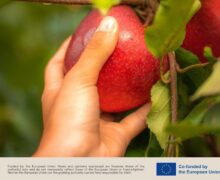What’s the future of travel?

As the tourism industry counts its losses, UNWTO estimates that the pandemic will result in a drop of about 440 million international tourist arrivals, amounting to a 30% decline in international tourism receipts. To put this into perspective, the tourism industry will lose about US$450 billion in 2020, and 75 million people globally will be left jobless. Depending on how the situation evolves, UNWTO may still further revise these figures.
With all the uncertainty around, the industry braces itself for the only certain outlook – change. We are about to witness massive shifts in travel and tourism patterns and consumer behavior.
The need for social distancing will mean that it will take a while before travelers feel safe going to a crowded airport and boarding flights. The recovery may be quicker for corporate travel due to it being relatively more essential in nature, whereas non-essential travel for leisure might have a longer recovery curve. Once leisure travel does take flight again, travelers will probably wish to test the waters with destinations closer to home, possibly even within driving distance. Singaporeans, for example, have reacted favorably to staycation offers within the city-state.
Even though luxury and upper upscale hotels are the ones hurting the most right now, they have the potential to recover at a relatively faster pace. Safety and cleanliness will be top of mind for travelers when choosing a hotel, which is where the meticulous standards of luxury hotels will play a key role.
Some of the leaders in the sector share their view on the situation:
James Thornton, CEO Intrepid Group: Travel has been so accessible to most of us for so long and it now feels like a luxury. We expect travellers will put a lot of thought into where they go next and how they travel on their post Covid-19 trips. We predict isolated, ‘clean’ destinations will recover fast. Places like Norway and some of its neighbours are leading the way with their management of Covid-19. They also offer some stunning and isolated destinations, where travellers can get away from it all. If 2020 proves to be a year we spend a lot of time indoors, then 2021 will be about getting outdoors and getting active so cycling and walking are likely to be popular.
Julia Lo Bue-Said, CEO of The Advantage Travel Partnership: As social distancing measures relax, and the country returns to a degree of normality we will learn that the experience of living through a global pandemic will have fundamentally changed us forever. We are now beginning to realise that travel is no longer the right of the fortunate but a luxury to be protected and celebrated.
Chris Webber, head of marketplace at icelolly.com: The travel industry is well versed in dealing with challenges, ranging from terrorism and ash clouds to ‘no deal’ Brexit uncertainty – but we are living in unprecedented times. While summer 2020 is optimistic, we believe that the nature and timing of holidays will change. Given the current school closures, it is probable that the school summer term may be extended. October half term, Winter Sun and Easter 2021 will all be significant. The timing and strength of the rebound will be based on how freely we can travel around the world.
Lynn Narraway, managing director UK and Ireland, Holland America Line: There is no doubt that recent events have hit the cruise industry particularly hard. However, throughout the past few weeks we have also been inundated with supportive comments from passengers who have recently sailed with us and who are looking forward to sailing with us again. We have been complimented on the unfailing service and care given to those on board during recent sailings and these are the things that help set the cruise industry apart and will continue to do so in the future.
Tom Jenkins, CEO of ETOA: The natural reaction is to assume that the future will be a product of the current situation. It won’t. We are facing a unique crisis produced by government reaction to the threat posed to their health services. This will pass. Mass gathering will return. Theatres, cinemas and football matches will become crowded. Tourism will start again.
MMP
foto: Shutterstock




